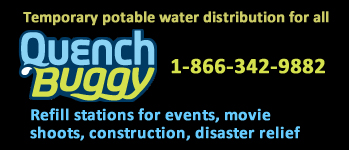
|
  

2/20/2025
WT Staff
 Got water questions? Got water questions? Give us a call at 877-52-WATER (877-529-2837), or email us at info@wtga.us
February 24, 2025 1201 pm EST
City of Washington water testing above MCL for disinfection by-products
Wilkes County: City of Washington drinking water has been determined in excess of the maximum contaminant level (MCL) for disinfection by-product total haloacetic acids in the water distribution system. The quarterly monitoring period Oct 1 2024 to Dec 31 2024 showed a running average for HAA5 at 64 ppb, where the MCL is 60 ppb. This violation recorded by Georgia EPD Division of Drinking Water Feb 12, 2025 is not included in the latest data update of the US EPA, which has verified the nation's drinking water monitoring and reporting results to the end of September 30, 2024.
See recent article on disinfection by-products, here.
City of Washington issued a system-wide boil water advisory Thursday, Feb 6 following a water line leak around GA-44 and Greensboro Rd. The line was promptly repaired and the boil notice was lifted the following day, according to City water department staff.
City of Washington provides potable water to 6490 residents, plus municipal offices, schools, clinics and local businesses. Washington Family Dental staff say they were not open the day of the incident, and all water inside the clinic is distilled, so the boil water order did not affect the clinic. Washington Wilkes Elementary School was impacted by the system-wide advisory. Bottled water was purchased for the students, the staff says the water service disruption "did not phase them one bit".
Washington sources raw water from three locations, Clarks Hill Lake, Beaverdam Creek-Lake Boline, and Little Beaverdam Creek - Lake Wall in the Savannah River watershed. Raw surface water is piped to one of two treatment facilities, Clarks Hill Lake water to the Aonia Water Treatment Plant east of the City, and Skull Shoals Water Plant west of the city for Lake Boline and Lake Wall water. Both treatment plants use disinfection in the treatment process, according to the 2022 Water Quality Report, "A small amount of chlorine or other disinfection method is used to kill bacteria and other microorganisms (viruses, cysts, etc.) that may be in the water before water is stored and distributed to homes and businesses in the community."
The US EPA records have City of Washington listed with no SDWA violations in the last three years, as of the latest verified reports, to the end of Sept 2024. The last state inspection was completed in Sep 2024 with minor deficiencies noted in distribution, finished water storage, pumps, security and treatment. Recommendations were made for Management and Source.
See the latest WTGA.us Serious Violator List, here.
The Safe Drinking Water Act protects public health through the administration and delivery of quality drinking water supplies across the USA. The US EPA establishes standards for drinking water, monitors and enforces treatment techniques for surface water and groundwater, sets maximum limits for around 100 contaminants ensuring public disclosure of deviations and discrepancies.
WaterToday opens the record books of the federal drinking water regulator to bring awareness to the local raw water supply and the compliance record of licensed water treatment facilities. The Georgia Department of Environmental Protection inspects 2,376 licensed and active public drinking water facilities, reporting to the EPA. Check back here for drinking water news and alerts as they arise.
|
|
|
|
All rights reserved 2025 - WTNY - This material may not be reproduced in whole or in part and may not be distributed,
publicly performed, proxy cached or otherwise used, except with express permission.
|
| 



